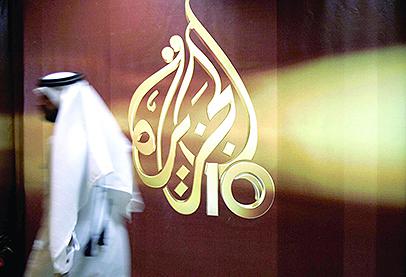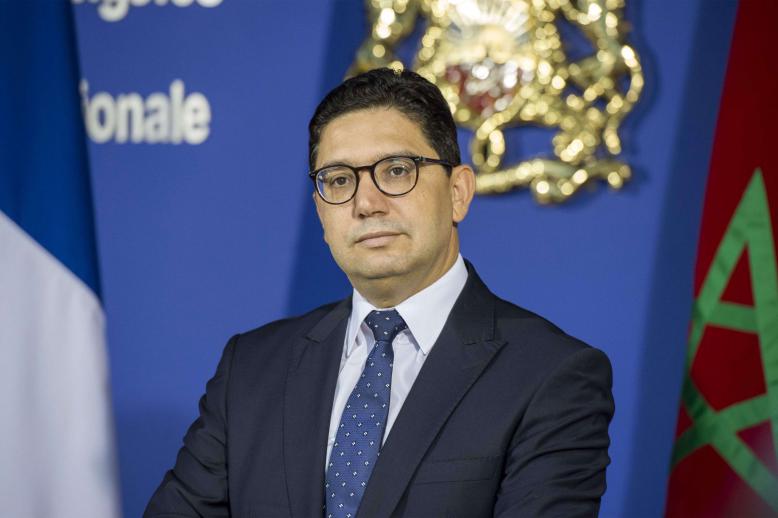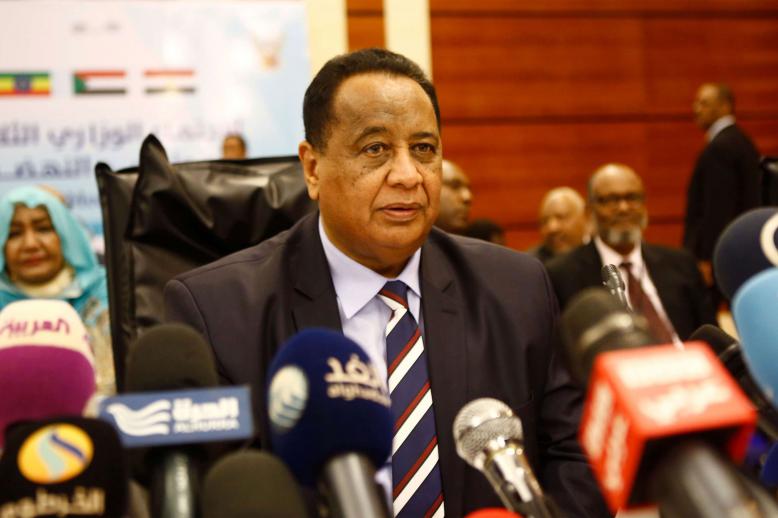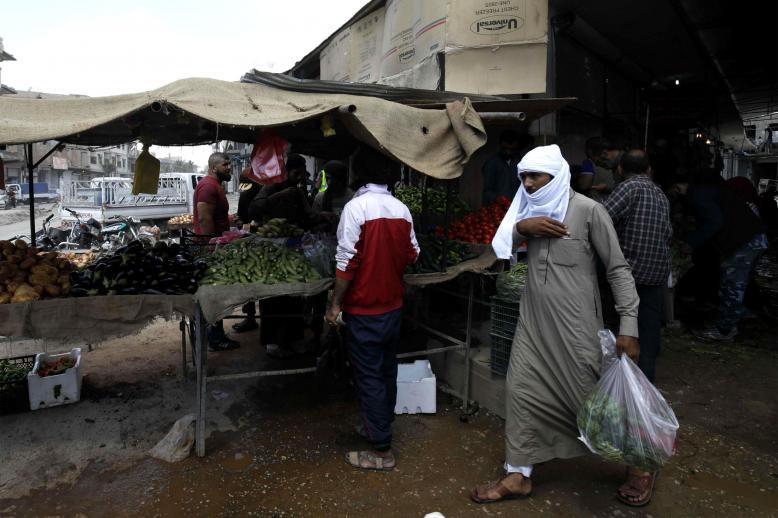Looking beyond the misleading narrative about Al Jazeera

While some in Western media share a misleading narrative about Al Jazeera, Egyptian political analyst Emad el-Hady said the Qatari-owned news network’s biased coverage was increasingly being exposed for what it is.
Since the start of the Gulf crisis over Qatar, in which Saudi Arabia, the United Arab Emirates, Bahrain and Egypt cut diplomatic ties with Doha last June, Al Jazeera has pursued an increasingly “vindictive” editorial policy, Hady said.
“Since then Al Jazeera’s coverage has been something akin to a war-zone spewing endless vindictive propaganda, launching salvos of baseless accusations, character assassination of the boycotting quartet’s leaders, fake news and half-baked or blown-out-of-proportion stories,” he said.
Hady pointed to Al Jazeera’s coverage of the war in Yemen as an example of its mutable editorial policy that is subservient to Doha’s political goals.
“When Qatar used to be part of the Saudi-led Arab alliance, [Al Jazeera’s] coverage of the war was from the alliance’s perspective through and through. Right after the quartet’s boycott, the network shifted to a critical then aggressive and finally an incriminating narrative focusing on anti-Saudi, anti-UAE concocted stories, with hardly any mention of atrocities committed by the Houthi rebels,” he said.
Al Jazeera and its coverage have always been a bone of contention between Doha and its Arab neighbours, particularly given that the channel failed to look at Qatar’s domestic issues.
In July 2017, the Arab quartet issued a 13-point list of demands for Qatar to address to end the crisis. The list included shuttering Al Jazeera. Doha refused.
Al Jazeera has been heavily criticised for its coverage of events in Yemen, not least the Houthi rebels firing missiles into Saudi Arabia.
“The whole Qatari media empire has sunk into vindictive coverage of everything related to the boycotting quartet. Al Jazeera Arabic channel reports on the Houthis’ missiles’ attacks on Saudi Arabia with apparent glee, if not with an element of schadenfreude highlighting casualties if any, as well as hosting a Houthi guest or broadcasting a statement from their media mouthpiece,” Hady said.
While Al Jazeera’s coverage has become increasingly exposed since the Gulf crisis, others say the process began with Al Jazeera’s reporting on the “Arab spring.”
“They have lost their credibility in the Arab world, by either covering developments one-sided or completely ignoring them,” said As’ad AbuKhalil in 2011, author of the Angry Arab News Service, a blog about media coverage in the Arab world. “They became a typical regime station… their political agenda is not even masked.”
Al Jazeera faced particular criticism for its coverage in Egypt following the ouster of Islamist President Muhammad Morsi in 2013. Similar assessments have continued through 2018.
“Egyptians have faced nothing but a long-lasting, 24/7 smear campaign focusing exclusively on all negative aspects, ills and shortcomings of Egyptian society. The smallest incident in Egypt will be blown out of proportion and headlined as a huge crisis,” Hady said.
“Al Jazeera’s persistent narrative of the ‘coup regime’ is just another example of its hypocrisy,” he added.
Despite this, Hady said Al Jazeera was becoming increasingly challenged and exposed in the Arab world and the West.
“Al Jazeera has lost a great deal of its credibility, its appeal and, inevitably, a big chunk of its viewership,” Hady said. “Every major crisis the Arab world has gone through during the last two decades has had the effect of eroding the prominent place the network used to enjoy on the Arabic media scene during its golden days.”
Qatar’s neighbours have sought to challenge Al Jazeera’s media supremacy with their own news outlets.
“We now have three major Arab countries — Saudi Arabia, the UAE and Egypt — that have their own outreaching, worldwide Arabic-language TV networks, as well as countless smaller private channels, not to mention the explosion of social media,” Hady said. “All of this has turned the skies wide open to flooding streams of information, news and views from all over the world. No longer could anybody claim to have a monopoly on the truth.”
Mahmud el-Shafey is an Arab Weekly correspondent in London. You can follow him on twitter @mahmudelshafey
This article was originally published in The Arab Weekly.





